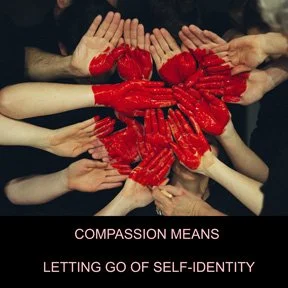Thanks to Mike for leading DPX this past Sunday with a meditation using the words , calm, soothe, settle to focus on. It was simple and powerful for our group. Then he presented a reading from Pema Chodron. Members of our group talked about other helpful Zoom groups they are attending such as Bill and Susan’s daily meditation through Barre Center for Contemplative Studies https://www.buddhistinquiry.org/online-programs/ and Kathy Cherry’s DPX-NYC morning meditation group https://www.dharmapunxnyc.com/#home-section.
I our group discussion some people talked about injustice in light of the killing by police of George Flyod. Saying “things in the world are so unsettling and it’s important to take action. The pandemic may be impacting people becoming more aware and their ability to act. We struggle with the part we cannot change.” We recognize that there are a lot of micro movements we can join within the bigger movement to change our broken society. As white people, we acknowledge that we, we have bias. Reading and listening can help. With meditation and mindfulness we realize, “here is where I am, and here is where I can make a difference. This is not a sprint. It’s an ongoing struggle and you need to take care of yourself so you can effectively do the work.”
Others talked on a more personal level about their recovery and feeling an unformed sense of self. Commenting that “what people call recovery, I call life”, and that “things are always getting better and worse at the same time. That’s why it’s important to remember impermanence.” Thanks to Mike for sharing with us Pema Chodron’s quote in her book When Things Fall Apart, which sums it up beautifully:
"Things falling apart is a kind of testing and also a kind of healing. We think that the point is to pass the test or to overcome the problem, but the truth is that things don't really get solved. They come together and they fall apart. Then they come together again and fall apart again. It's just like that. The healing comes from letting there be room for all of this to happen: room for grief, for relief, for misery, for joy.
When we think that something is going to bring us pleasure, we don't know what's really going to happen. When we think something is going to give us misery, we don't know. Letting there be room for not knowing is the most important thing of all. We try to do what we think is going to help. But we don't know. We never know if we're going to fall flat or sit up tall. When there's a big disappointment, we don't know if that's the end of the story. It may be just the beginning of a great adventure”.



